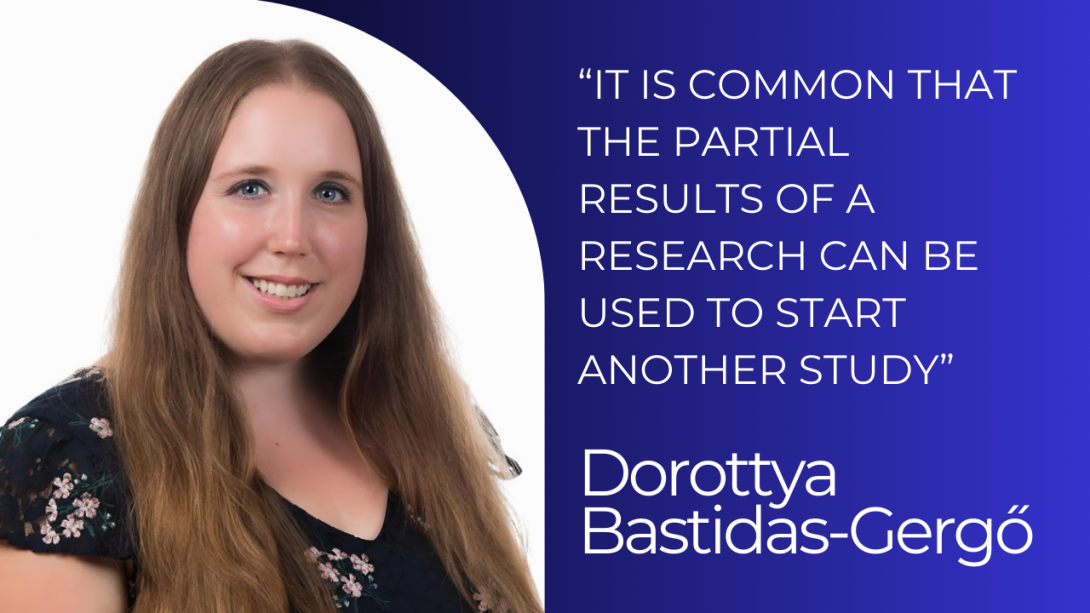
She has already observed many times how a project is structured, which allows her to take a long-term view. She also notices when partial results of a research can be used to start another study. In March, Dorottya Bastidas-Gergő was named Science Methodology Supervisor of the Month at the Centre for Translational Medicine.
Dorottya Bastidas-Gergő is a medical biotechnologist who has participated in the training of Centre for Translational Medicine as an SMS since last September. However, her unofficial journey started when CTM moved to Semmelweis University. “I have been assisting students ever since. Currently, I have nine first-year students in two groups. Three are in the Cardiology Group, and six in the Pediatric Group. I often provide methodological advice to students and explain the practical use of software. I can connect students with the most appropriate colleague at CTM, if needed. My previous experience of observing many projects from start to finish helps me think long-term. For example, I can recognize if the partial results of one research can be used to start another study.”
Dorottya is also a PhD student, so she has her own projects as well. She has also been a Student of the Month before. “I’ve started my studies at the Department of Pharmacognosy, and I joined the CTM training as a third-year PhD student. My research topics are related to the usage of herbal products. I want to provide scientific evidence for health professionals to facilitate their work and help them to make evidence-based decisions when they apply herbal products. For this reason, we examine the clinical efficacy and safety of herbs and herbal products. Currently, I have two meta-analysis projects, and I am also preparing a clinical trial protocol.” Her meta-analyses focus on peppermint. It is likely that the essential oil of this herb can alleviate nausea and vomiting. Inhaling it could be especially useful when antiemetic drugs are not recommended, for example, during pregnancy.
In her other meta-analysis, Dorottya examines the usage of peppermint oil during endoscopic examinations. “We want to clarify whether this essential oil has an anti-peristaltic effect. This would be beneficial because there are drugs that can reduce peristalsis during endoscopy, but these cannot be used in all cases.” She is also working on a clinical trial protocol to examine the effect of an herbal syrup containing thyme. This product has been used for several decades, but only based on experience. Therefore, it is essential to validate its efficacy clinically. The clinical trial is being conducted on children with acute bronchitis. If the effect is clinically proven, doctors can use this herbal product more widely before using medicines.
(Emese Szabó)